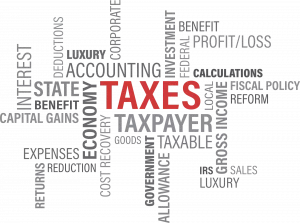Image from www.thereverseadvisor.com
Did you know that a reverse mortgage could be a great tax planning tool? Most people just know it as a way to access the cash tied up in their homes, but I’m going to show you how it can help your taxes too.
Here’s the first bit of good news.
You don’t make monthly payments with a reverse mortgage. Instead, you receive payments (monthly, lump sum, or as a line of credit), and the mortgage balance grows with each payment you receive.
No one owes payments until you move out of the home or pass away. If that’s the case, your heirs must pay off the loan with the proceeds from selling the home.
So, what’s the benefit?
First, you can stay in your home. Second, you get the cash your home accumulated to use while you’re alive.
If you were to sell your home to get the cash, you might be subject to capital gains taxes on some or all of the proceeds, leaving you with less cash in hand. The federal home sale capital gains exclusion is $250,000 for single filers and $500,000 for married filing jointly couples.
For most people, the tax liabilities go into the hundreds of thousands, leaving you with a lot less cash in hand.
If you instead stay in the home and take out a reverse mortgage, you don’t pay the income taxes on the funds, and you might even avoid estate taxes for your heirs.
Here’s why.
When you die, your heirs can use the stepped-up fair market value of the home. In other words, their basis is the home’s value on the day you die. If they sell the home relatively soon, there will be little capital gains in the eyes of the IRS, which can mean a much lower tax liability.
If you’d like to learn more about how a reverse mortgage might help you reduce your tax liabilities, contact us today.

